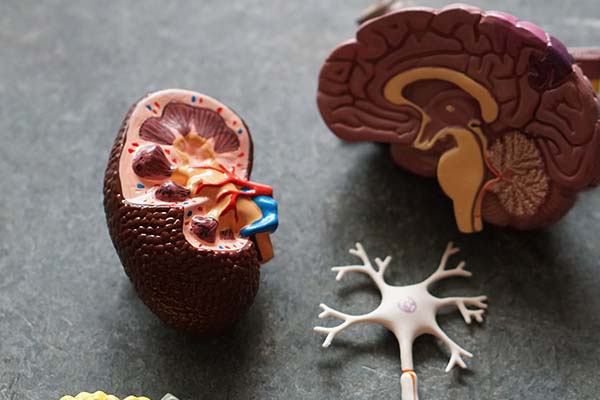Stress is frequently a factor that contributes to or worsens numerous conditions ranging from psoriasis to perverse bowel patterns, maybe because it results in compromised immunity. Recent evidence has shown that stress may be involved in accelerating the onset of Alzheimer’s disease as well as worsening the disease course. In this article, we are going to talk about the relationship between Alzheimer’s and stress.
What Is Stress
Stress occurs when the body has to respond to a state of affairs that ought to be dangerous. Symptoms include a pounding heart, sweating, and demanding muscles.
These signs and symptoms are supposed to fade away once the threat passes, but some people may additionally discover that these careworn emotions continue. This prolonged – or chronic – stress can be very serious and have extreme outcomes on a man or woman emotionally, mentally, and physically.
What Is Alzheimer’s
Alzheimer’s disease (AD) is the most usual kind of dementia that appears late in life and has devastating consequences both for society and patients. This is a silent disease in which neurode generation takes place in the Genius a long time earlier than the analysis of the disease). This lengthy period of time between the look of the first pathophysiological changes and the presentation of scientific signs and symptoms suggests that there is an AD continuum in which special transition stages can be distinguished.
Just like the rest of our bodies, our brains change as we progress. utmost of us ultimately notice some braked thinking and occasional problems with remembering certain things. still, serious memory loss, confusion and other major changes in the way our minds work may be a sign that brain cells are failing.
Alzheimer’s changes generally begin in the part of the brain that affects learning. As Alzheimer’s advances through the brain it leads to decreasingly severe symptoms, including disorientation, mood and behavior changes deepening confusion about events, time and place; unsupported suspicions about family, friends and professional caregivers; more serious memory loss and behavior changes; and difficulty speaking, swallowing and walking.
Why Has Stress Been Linked To Dementia
There are numerous logical reasons why stress could be linked to dementia. Stress affects the vulnerable system, which is known to play an important part in the development of dementia.
A crucial hormone released when you’re stressed, cortisol, has been linked to problems with memory. Stress is also nearly linked to conditions similar to depression and anxiety, which have also been suggested as factors that could increase the threat of dementia.
Some research has set up that stress appears to have a direct impact on some of the mechanisms underpinning dementia in animal models.

How Does Stress Affect The Body
Activation Of Hypothalamus–Pituitary–Adrenal Axis
Stress activates the HPA axis which stimulates the release of the stress hormone cortisol from the adrenal gland. Cortisol is an important hormone that’s buried in response to fear and stress. Still, if the body is exposed to the patient or habitual stress, high cortisol situations can affect the vulnerable system of the body. They can alter colorful physiological processes and make you prone to depression, anxiety, and early-onset dementia. They can directly affect the pathological processes of Alzheimer’s. Cortisol, in redundant, is set up to damage the memory center of the brain. High situations of cortisol may reduce the capability to learn and retain new information
Deposition Of Beta-Amyloid In The Brain
Alzheimer’s is characterized by increased situations of beta-amyloid, a toxic protein that causes shrine buildup in the brain. Animal studies have reported that stress increased the product of toxic beta- amyloid in animals with Alzheimer’s. There was also a decline in cognitive functioning in these animals.
All the studies evaluating the part of stress in the development of Alzheimer’s have been conducted in creatures. These studies have explosively suggested stress as an implicit threat factor for Alzheimer’s. mortal studies to substantiate the same is lacking. Studies targeting cortisol and beta- amyloid situations have been shown to be effective in beast models of Alzheimer’s. Still, when similar experiments were conducted in humans, only a modest effect was observed.
Scientists have suggested that behavioral, cerebral, or pharmacological strategies aimed at increasing resilience to stress might delay the onset or decelerate the progression of Alzheimer’s.
Some pills that appear to work in animals have now not been successful in treating humans. It is now not regarded how plenty stress is required to motivate Alzheimer’s. Moreover, how anyone perceives and copes with stress differs considerably. Therefore, extra studies on people are required earlier than pronouncing that stress impacts Alzheimer’s. There may also additionally be different causative elements at play. Human studies are also imperative to locate if anti-stress therapies can be used to treat Alzheimer’s.
How To Cope With Stress
Current evidence is inconclusive whether dragged stress increases your threat of dementia. still, it’s still a good idea to do things that relieve stress. Stress reduction can reduce your risk of other conditions like heart complaints. Then are a many tips to manage with stress.
Go for massage therapy Getting a massage can help relieve stress and anxiety.
Try relaxation techniques These include deep breathing, contemplation, tai chi, and yoga.
Seek cognitive behavioral therapy( CBT) Psychotherapists use CBT to help people change the way they suppose about situations that may be contributing to stress.
Get regular exercise Being physically active releases feel-good hormones and helps lift your mood.
Enjoy simple pleasures Do what you enjoy doing. Watch a funny movie, paint, go for long walks, work in the garden, light a fragrant candle and soak in a bubble bath.
Connect with friends and family: Talk to your buddies and family individuals over the phone. Have them over or meet for a cup of coffee or lunch or dinner. Sharing your experiences with them about how you experience can limit your stress burden immediately.
Listen to soothing music, sing or dance: When you cannot turn off terrible thoughts, flip on some feel-good, foot-tapping, upbeat track and sing alongside and dance.



